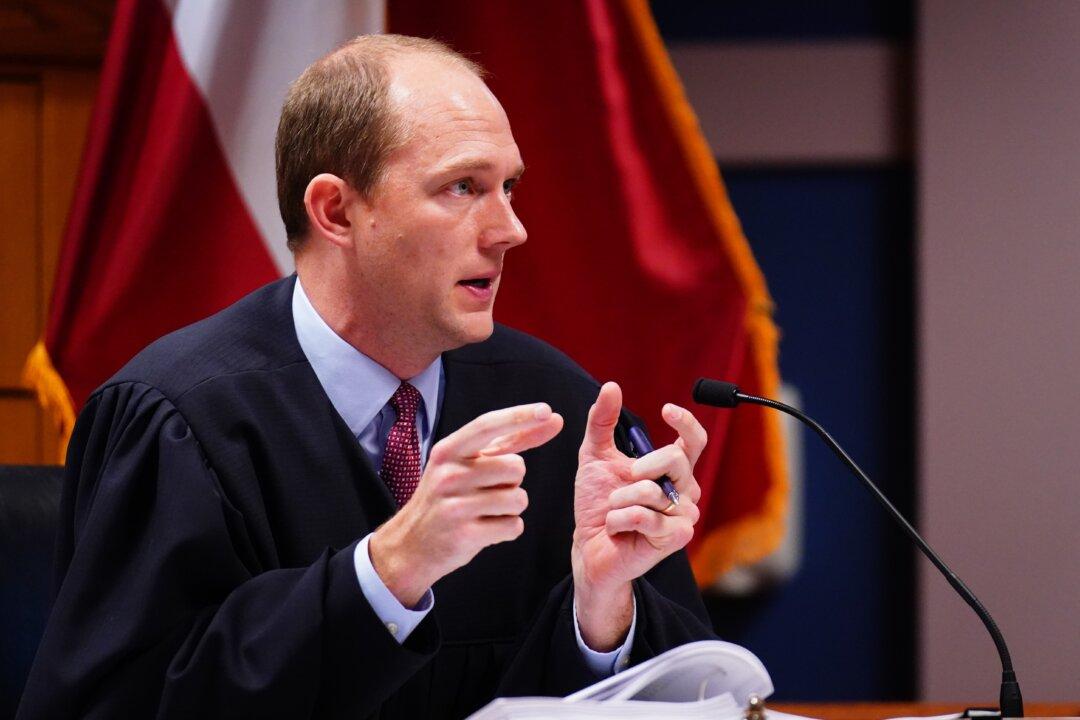Defense attorneys for Robert Cheeley and Ray Smith, both former attorneys for former President Donald Trump, sought to resurrect arguments that the Fulton County District Attorney had used legal statutes improperly, and argued that the judge should throw out the deficient indictment during a Jan. 12 motions hearing.
Last August, President Trump was charged alongside 18 others with violating Georgia’s Racketeer Influenced and Corrupt Organizations (RICO) Act for their actions to challenge the 2020 election. Four defendants have since taken plea bargains, and legal counsel for the remaining 15 will be arguing in motions hearings scheduled for the next few Fridays.





